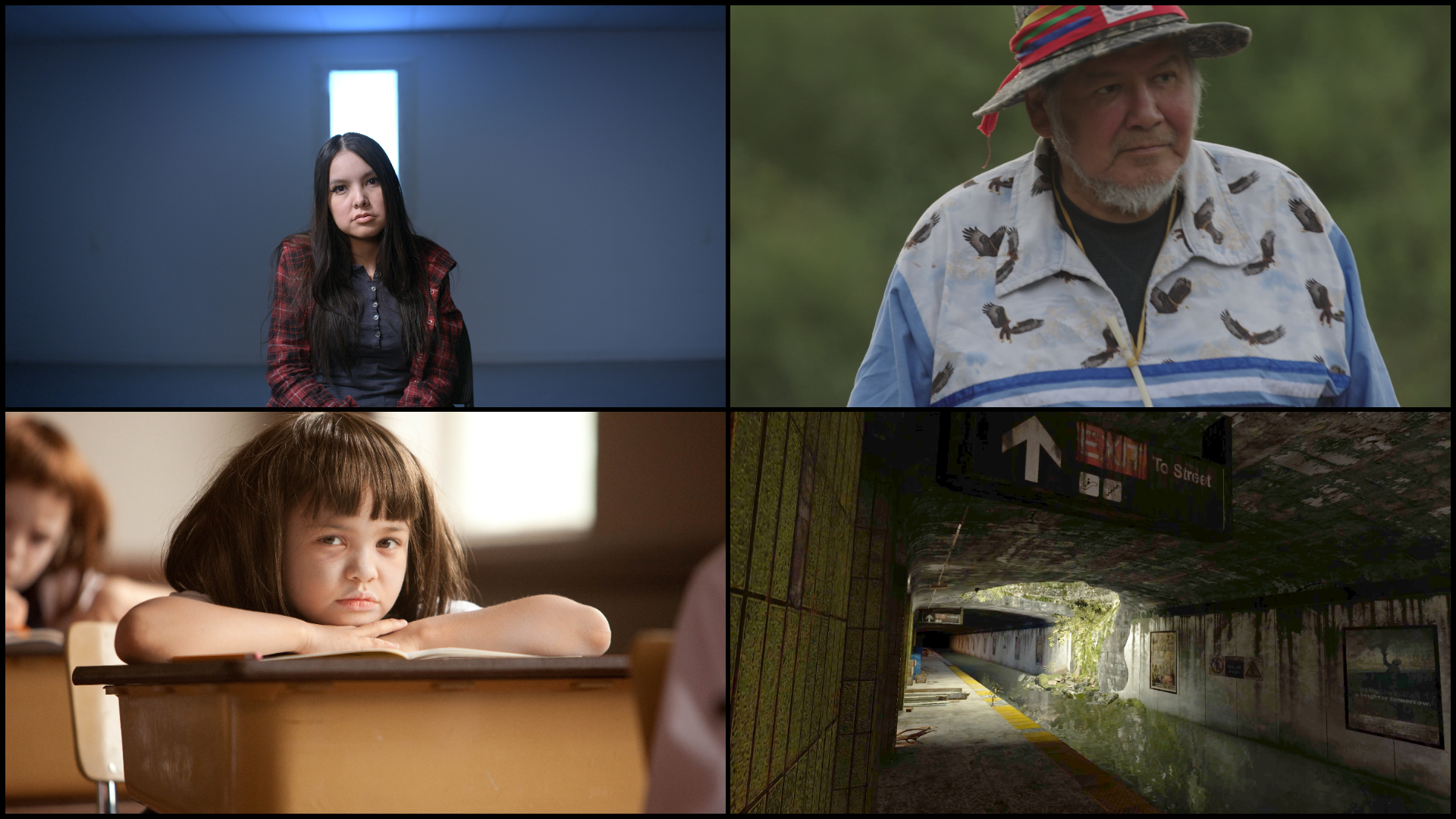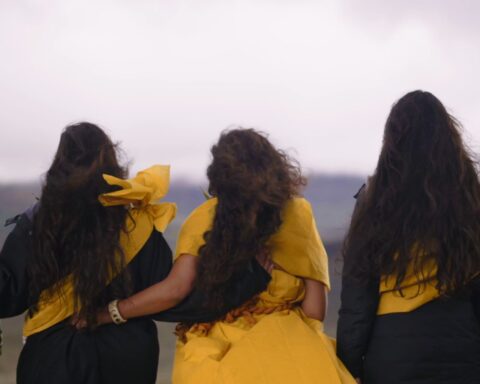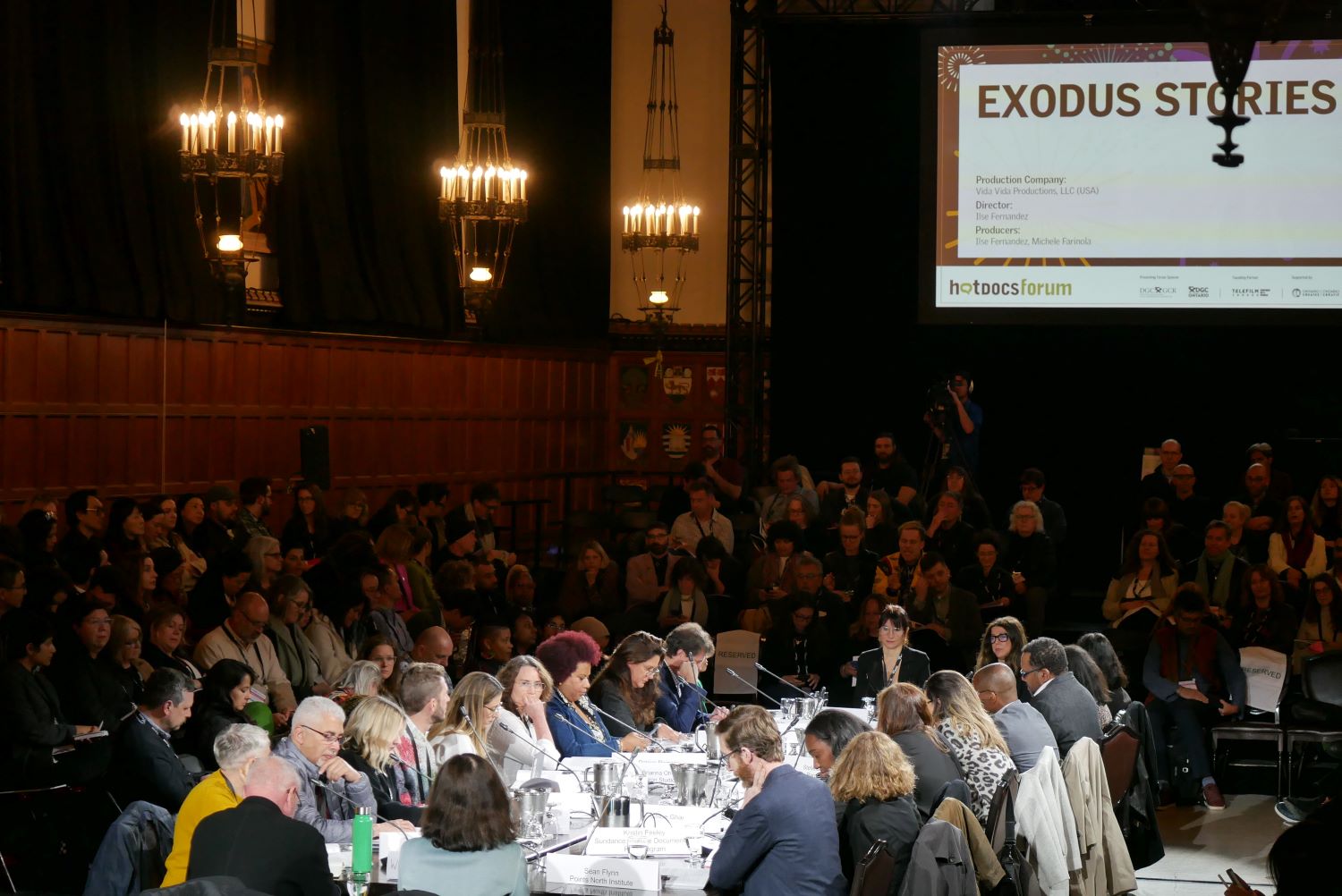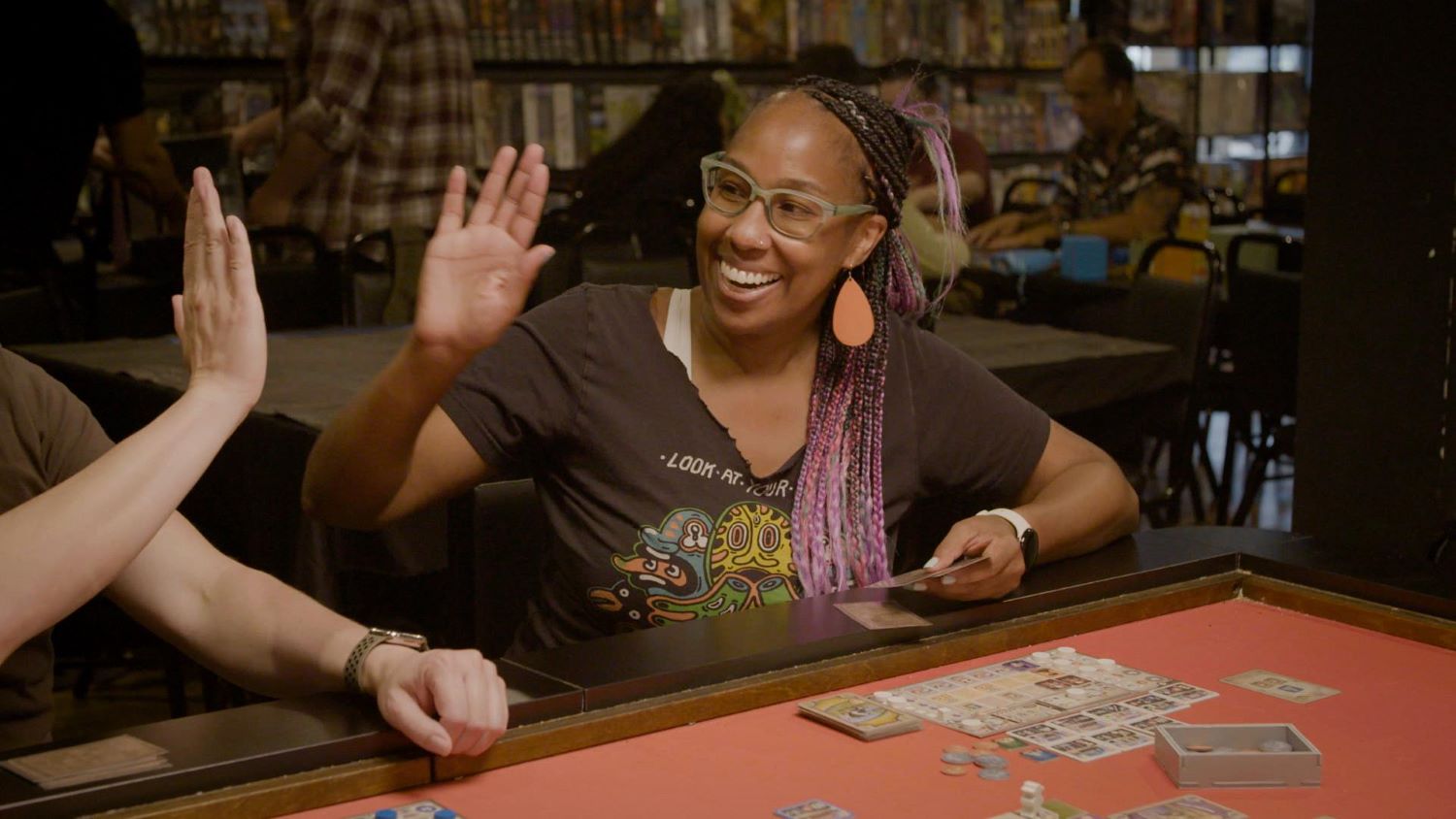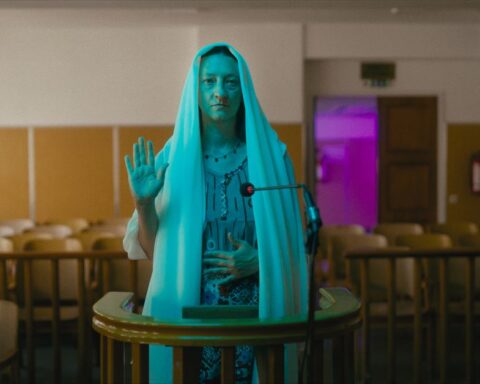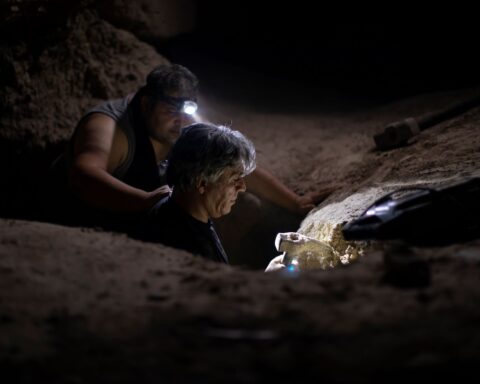Her works may focus heavily on the various facets of Indigenous experience, both past and present, but Anishinaabe filmmaker Lisa Jackson rebuffs the notion that she is an activist voice in Canadian film. While some label her too artsy for the mainstream, and others claim she is too mainstream for the artsy community, she actively refuses to fit in the confining boxes Indigenous and BPOC filmmakers are often placed in. Jackson views herself mainly as a filmmaker who dabbles in various artistic forms—documentary, animation, drama, VR, music, and installation—to tell complex, human-centred stories that are compassionate and committed to telling the truth in a way that can be uncomfortable at times.

“We talk about truth and reconciliation, but I have heard many Indigenous people say, ‘They want the reconciliation, but they want to skip over the truth part.’ To me, part of the truth is telling the impacts of the past and the continuing impacts today.” Jackson notes. “I have seen firsthand that when you really honour those [whose story you are telling] and hold those traumas carefully, there is deep healing in that.”
Jackson’s careful approach to navigating traumas of the past and present is on full display in her documentary How a People Live (2013). Telling the harrowing 100-year history of the Gwa’sala-’Nakwaxda’xw First Nation, the film captures the layers of hardships and injustice that the community has had to overcome. Everything, from disease brought into the community by colonizers, to the horrors of residential schools, to forced relocation to land that is barely livable, is touched on. Rather than wading in the pool of trauma, Jackson creates avenues for communal healing by allowing the elders and descendants, some speaking openly for the first time, to share their stories. This not only provides moments of catharsis, but a sense of hope knowing that the film and its stories will be shown to future generations.
Instilling knowledge from the elders in the minds of the next generations is important for fostering a sense of self and community, as well as reaffirming the value in reclaiming the Indigenous languages that were forcibly stripped away. Throughout Jackson’s impressive oeuvre, language has been a prominent and recurring theme. Her immersive virtual-reality film Bidaaban: First Light (2018) offers a stunning look at a possible future where language and nature reshape Toronto’s urban landscape. The sister piece to that film, the art installation Transmissions, was a massive undertaking that further pushed forward Jackson’s desire to get audiences to recognize the importance of supporting, saving, disseminating, and respecting Indigenous languages.
“Culturally, the languages are the bedrock of Indigenous ways of being in the world,” Jackson says, reflecting on the work. While the pandemic curbed the installation’s chances to travel to different cities after its 2019 Simon Fraser University debut, Jackson compiled key elements of the work into the website Transmissions Expanded (transmissionsx.com) to make it accessible for all.
The desire to convey intricate ideas in an accessible manner is also evident in Jackson’s latest short I Pity the Country (2023), which she co-directed with Conor McNally. Offering a vibrant mosaic of the joys and pain of First Nations peoples, to the backdrop of Leanne Betasamosake Simpson’s pulsing rendition of Willie Dunn’s song of the same name, the piece is both a fascinating reflection on the past and an homage to Indigenous sovereignty and resistance. Juxtaposing archival footage of the King’s Guard walking in reverse with Indigenous children joyously running forward, people protesting to protect their land while smoke billows from a cluster of factory rooftops, and other subversive imagery, she refocuses the history that viewers thought they knew and challenges them to look from a different perspective.
Jackson finds a richness and complexity in what can be revealed when observing archival footage with modern eyes. While history tends to be approached from a simplified view, she finds more nuances in the documentation of the past. “They turn the black and white of our written history into shades of gray,” explains the filmmaker. “Those shades of gray allow us as individuals to interrogate ourselves and look at the more complex ways that historical oppression has occurred.”
This exploration into the complicated impact of the oppression Indigenous people have endured has been prevalent since Jackson’s stirring debut Suckerfish (2004). The experimental documentary short knits together photographs and animation to create a moving quilt representing her fraught relationship with her mother, a bond that was strained by the reverberating effects of the trauma her mother experienced at a residential school. Reflecting on the work, Jackson points out that she is still struck by how profoundly different her mother’s experience was to her own, and how easy it is for society to forget that it was so much harder for Indigenous communities just one to three generations ago.
“It’s human nature that we forget the recent past…and the intergenerational impacts,” says Jackson. “Part of my bent as a filmmaker is to look at the way those ripples flow through time.”
Although these ripples may seem small, they often carry the impact of waves breaking on the shore. Knowing how the legacy of trauma weighed down her mother, Jackson knew from early in her life that, regardless of whatever career path she took, she would fight to ensure things were better for people than what her mom experienced.
It is this commitment to helping foster societal change and understanding that makes Jackson a vital member of the Documentary Organization of Canada. Her films challenge the audience to examine their assumptions and consider the impacts of events which occurred generations earlier. In Reservation Soldier (2007), which explores the Canadian military’s efforts to recruit Indigenous youth into their ranks, Jackson introduces the viewer to several Indigenous teens who see the army as a way out of a vicious cycle of drugs and crime. While there are pros and cons to military service, the director also reminds viewers that many of the dismal predicaments the teens find themselves in are a direct result of actions of the same Canadian government that they are signing up to serve.
The same empathetic lens used to reveal and reshape the complex relationship between teens and the military is also present in her fascinating documentary Indictment: The Crimes of Shelly Chartier (2017). Co-directed with Shane Belcourt, the film tells the sensational story of how a reclusive young woman from a Manitoba First Nation made international headlines by catfishing NBA star Chris Anderson. Moving beyond the salacious headlines, the film helps the audience reveal the morally complicated layers at the story’s core.
“As filmmakers, we all know the most compelling narratives are ones where there is complex human nature within them and a sense that we can see ourselves in the characters,” says Jackson.
The desire to have audiences lean in and connect with the subject matter on a visceral level is partly why Jackson has made several dramatic short films. Whether taking a haunting look at the issue of missing Indigenous women in
Snare (2013), tackling the familial divide caused by residential schools in Savage (2009), or showcasing teens forced into adulthood due to circumstances beyond their control in Parkdale (2011), she aims for a broader emotional connection than we are seeing in our current blockbuster films and on social media.
As news soundbites and social media posts continue to fracture our attention, instant outrage has overshadowed the greater historical perspective needed to elicit compassion. Jackson’s films change the conversation by providing the context and space that is needed to properly reflect on the past and present. “I want us to take a breath and be able to exist in a larger scope of what it means to be human.”
[Jackson’s latest film, Wilfred Buck, premiered at CPH:DOX 2024 and screens at Hot Docs.]
This article originally appeared in POV issue #120 (Winter 2023), published in print in December 2023 to mark the 40th anniversary of the Documentary Organization of Canada. For complete and immediate access to articles in the print magazine, please consider subscribing.




